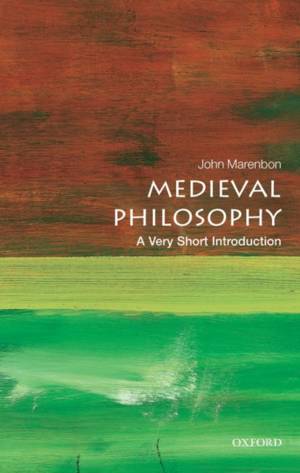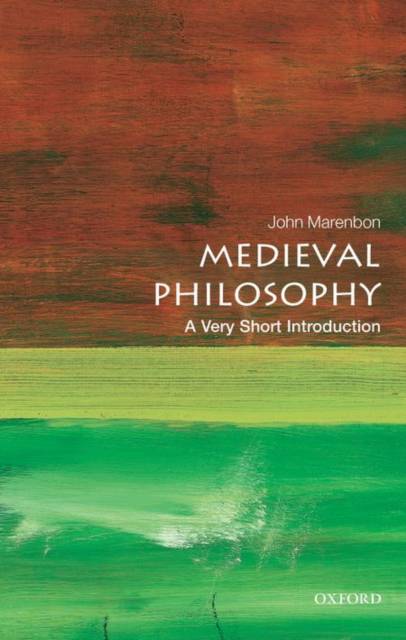
- Afhalen na 1 uur in een winkel met voorraad
- Gratis thuislevering in België vanaf € 30
- Ruim aanbod met 7 miljoen producten
- Afhalen na 1 uur in een winkel met voorraad
- Gratis thuislevering in België vanaf € 30
- Ruim aanbod met 7 miljoen producten
Zoeken
Omschrijving
For many of us, the term 'medieval philosophy' conjures up the figure of Thomas Aquinas, and is closely intertwined with religion. In this Very Short Introduction John Marenbon shows how medieval philosophy had a far broader reach than the thirteenth and fourteenth-century universities of Christian Europe, and is instead one of the most exciting and diversified periods in the history of thought. Introducing the coexisting strands of Christian, Muslim, and Jewish philosophy, Marenbon shows how these traditions all go back to the Platonic schools of late antiquity and explains the complex ways in which they are interlinked. Providing an overview of some of the main thinkers, such as Boethius, Abelard, al-Farabi, Avicenna, Maimonides, and Gersonides, and the topics, institutions and literary forms of medieval philosophy, he discusses in detail some of the key issues in medieval thought: universals; mind, body and mortality; foreknowledge and freedom; society and the best life. ABOUT THE SERIES: The Very Short Introductions series from Oxford University Press contains hundreds of titles in almost every subject area. These pocket-sized books are the perfect way to get ahead in a new subject quickly. Our expert authors combine facts, analysis, perspective, new ideas, and enthusiasm to make interesting and challenging topics highly readable.
Specificaties
Betrokkenen
- Auteur(s):
- Uitgeverij:
Inhoud
- Aantal bladzijden:
- 160
- Taal:
- Engels
- Reeks:
Eigenschappen
- Productcode (EAN):
- 9780199663224
- Verschijningsdatum:
- 1/04/2016
- Uitvoering:
- Paperback
- Formaat:
- Trade paperback (VS)
- Afmetingen:
- 107 mm x 173 mm
- Gewicht:
- 90 g

Alleen bij Standaard Boekhandel
+ 27 punten op je klantenkaart van Standaard Boekhandel
Beoordelingen
We publiceren alleen reviews die voldoen aan de voorwaarden voor reviews. Bekijk onze voorwaarden voor reviews.











